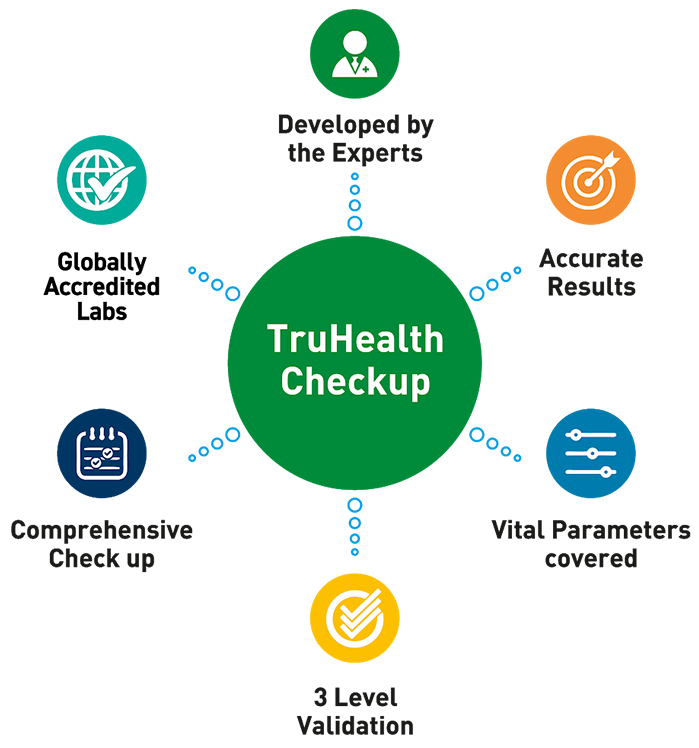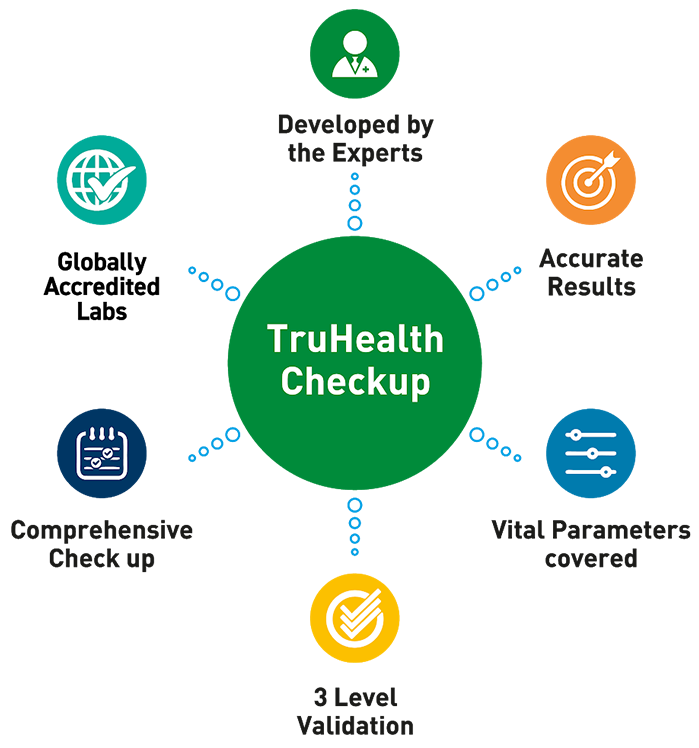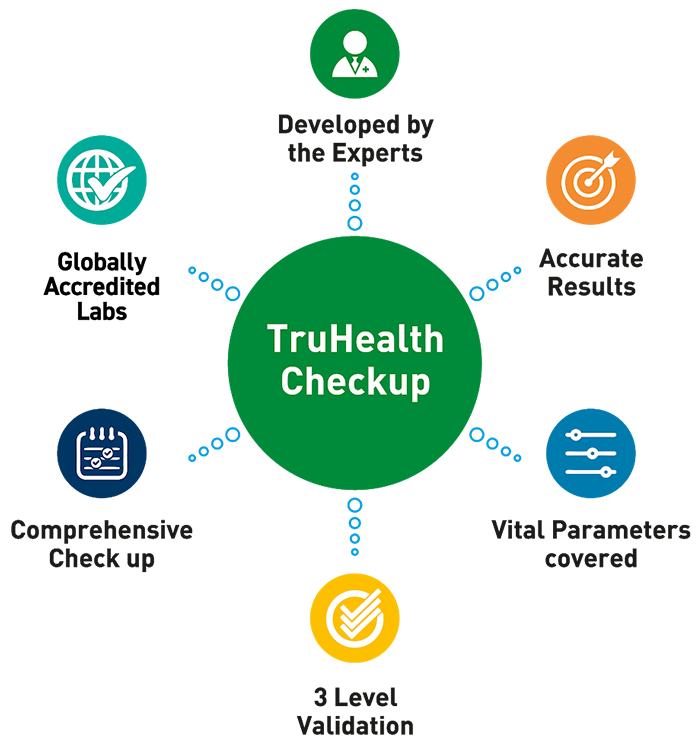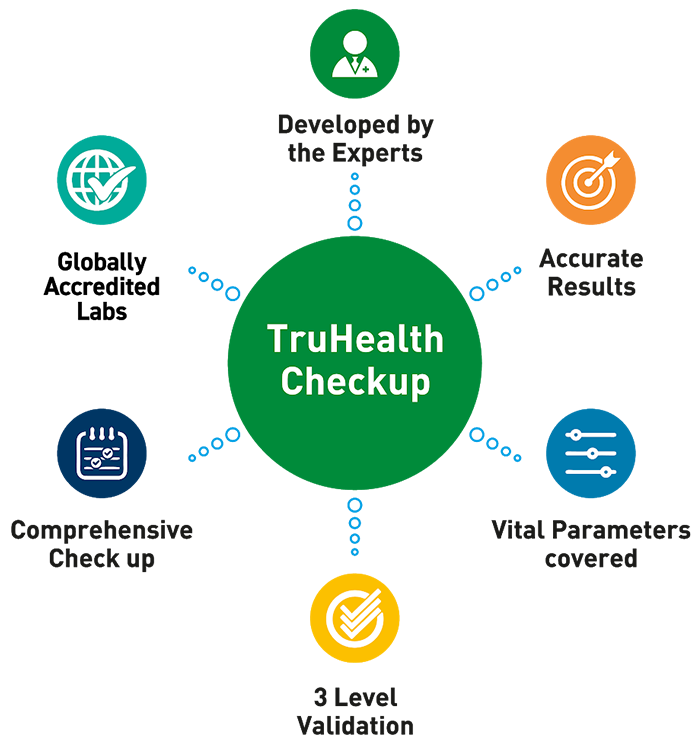Preventive Healthcare
PCOS Testing: Blood Tests, Hormone Levels, and Diagnosis

Table of Contents
What is PCOS (Polycystic Ovary Syndrome)?
As the name suggests, women suffering from PCOS (polycystic ovary syndrome) develop "poly” or several cysts (small fluid-filled sacs) in their ovaries. These cysts contain immature eggs that never mature enough to ovulate. Changes in estrogen, progesterone, FSH, and LH levels are seen in women with PCOS. Progesterone levels get lower, while androgens are higher than normal.
The high androgen levels suppress ovulation, making it difficult to get pregnant. It also results in excessive hair growth on the face and body, as well as male-pattern baldness.
Additionally, women with PCOS are at a higher risk of developing diabetes and heart disease in the long run.
What are The Other Tests That Are Done With The PCOS Test?
Women with PCOS are at a higher risk of developing diabetes type 2 and hyperlipidemia. Thus, physicians often recommend testing to rule out these two conditions.
Fasting blood sugar (FBS), postprandial blood sugar (PPBS), and oral glucose tolerance test may be done to check for diabetes. These tests measure your blood sugar levels and assess how your body metabolizes sugar. Insulin resistance is commonly seen in PCOS, which impairs the way sugar is utilized by the body.
Lipid panel blood test measures the level of different types of cholesterol in the blood – HDL (high-density lipoprotein), LDL (low-density lipoprotein), total cholesterol, and triglycerides. Patients with PCOS often have high cholesterol levels.
When to See a Doctor For PCOS?
You should consult a physician if you are experiencing any of the below-mentioned symptoms:
- Irregular/fewer periods.
- Heavy menstrual bleeding.
- Unable to conceive.
- Excessive hair growth on the face, back, chest, and belly.
- Hair loss with male-pattern baldness.
- Acne.
- Weight gain.
- Darkening of the skin, especially at body creases in the neck, groin, and breasts.
How is PCOS Diagnosed?
There is no single test to diagnose PCOS. To diagnose the problem, your doctor will ask about your family history, and symptoms such as irregular menstrual periods. The doctor will also perform a physical exam to look for excess body hair, acne, male-pattern baldness, and darkening of the skin. She/He may also measure your waist size and body mass index (BMI).
A pelvic ultrasound is often done to look for polycystic ovaries, thickened uterine lining, etc. Some blood tests are done to check hormone levels and blood sugar.
Let us learn more about the PCOS blood test. The hormonal test for PCOS include:
FSH and LH: The normal levels of LH and FSH are in the range of 4-8 during reproductive age in women, and the LH: FSH ratio is 1. However, in women with PCOS, this ratio may be as high as 2:1 or even 3:1. FSH level may even be normal in PCOS, but LH levels may be elevated to 10-20. It needs to be mentioned, however, that it is not uncommon to see normal levels of FSH, LH, and LH: FSH ratio in women with established diagnoses of PCOS. Thus, this test is not considered a confirmatory test for PCOS.
Total Testosterone and Free Testosterone: Testosterone and dehydroepiandrosterone (DHEA) are called androgens. Normally, the testosterone level is very low in females as compared to males. Symptoms such as abnormal facial and body hair, and acne in women with PCOS are most often caused due to high levels of testosterone.
Total testosterone is the total amount of testosterone in your body, which includes free testosterone. Free testosterone is only a small fraction of testosterone that is actually active and available in the body. The normal total testosterone level in females of reproductive age is 15-70 ng/dL, whereas the normal free testosterone level in females is 0.7-3.6 pg/mL. Elevated levels of both total and free testosterone are commonly seen in women with PCOS.
DHEA-S (Dehydroepiandrosterone): DHEA-S is another male hormone that is found in small quantities in females, usually in the range of 35-430 ug/dL. Several women with PCOS have a DHEA-S level of more than 200 ug/dL.
Androstenedione: Ovaries and adrenal glands produce androstenedione. A high level of this hormone may affect the levels of estrogen and testosterone. Its normal levels are 0.7-3.1 ng/mL.
There are a few other medical conditions that cause similar symptoms to that of PCOS. Thus, your physician may ask for some tests to identify the actual problem.
Prolactin: A higher-than-normal level of prolactin can cause irregularity in the menstrual cycle, as seen in females with PCOS. Prolactin is a hormone secreted by the pituitary gland. Prolactin may be high in some women with PCOS. If you have high levels of prolactin, an MRI of the pituitary gland may be done to rule out a pituitary tumour.
TSH (thyroid stimulating hormone): TSH (thyroid stimulating hormone) is produced by the thyroid gland. Underproduction or overproduction (hypothyroidism or hyperthyroidism) may cause menstrual irregularities and difficulty in conceiving. Though TSH is typically normal in PCOS, this test may be done as part of the PCOS blood test to rule out any thyroid disorders.
FAQs
Why is a PCOS Test Done?
Hormonal imbalances are seen in patients with PCOS. The PCOS test measures the levels of hormones such as testosterone, FSH, LH, etc, to detect any abnormalities and plan the treatment accordingly.
What is Measured in the PCOS Test?
PCOS test is a comprehensive test that may include all or some of the following: FSH, Prolactin, free testosterone, 17-OHP, fasting, postprandial blood sugar, HOMA, androstenedione, DHEAS, DHT, Lipid profile-2, T3, T4, TSH, SHBG, Cortisol, AMH.
How is The PCOS Test Done?
PCOS test is a simple blood test that takes less than 5 minutes. A lab technician will take a blood sample from a vein in your arm and send it to the lab for analysis.
Is There Any Special Preparation Needed For The PCOS Test?
If fasting and postprandial blood sugar tests are required in your PCOS panel, you will have to fast for 10-12 hours (or overnight) for the fasting blood sugar sample and will have to again give a blood sample 2 hours after a meal for the postprandial blood sugar test.





















